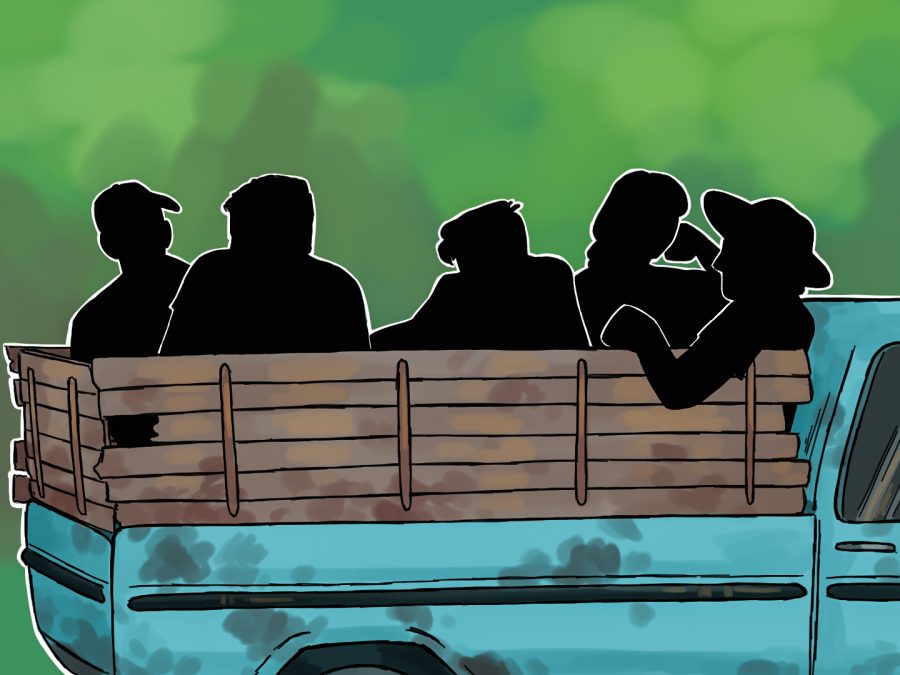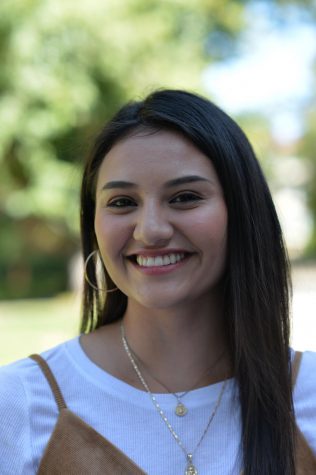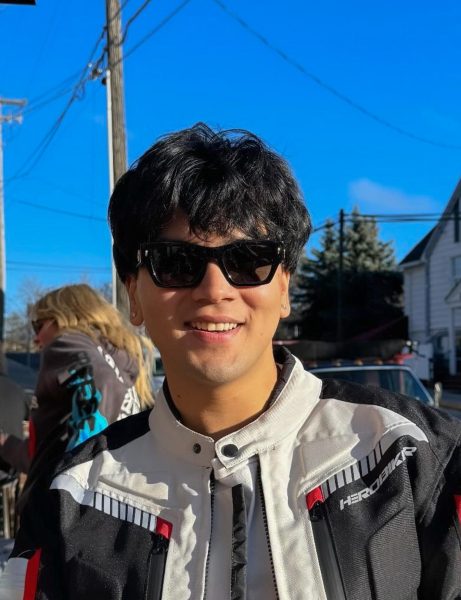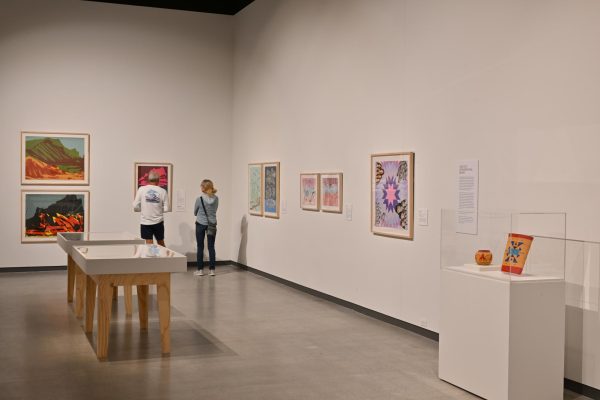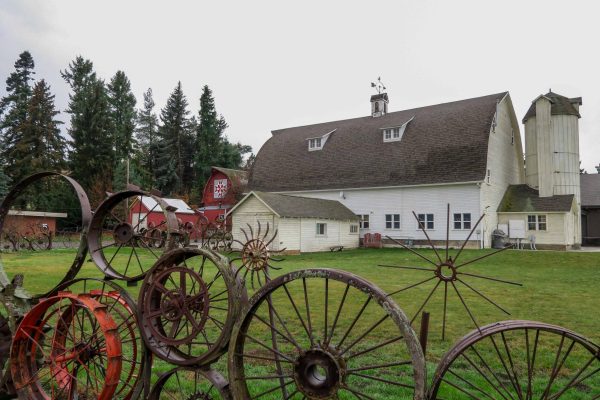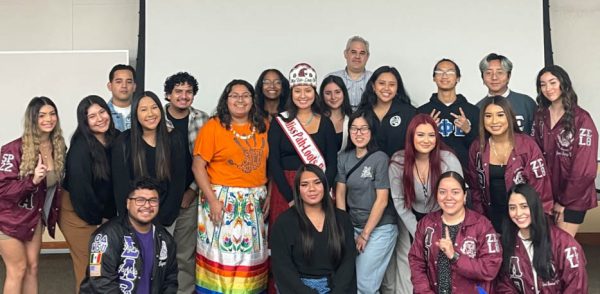Letter from the editor: Where I come from, De donde vengo
Immigrant parents instilled pride through acceptance, hard work in orchards during hot summer months
“The workers couldn’t believe the amount we’d be paid. My dad was the first to suggest a strike. None of the workers wanted to,” news editor Daisy Zavala said.
October 2, 2019
We were constantly picking fruit, always working in a rush. We didn’t have time to think. We were mechanical because we were expected to be mechanical.
But when I was up there at the tops of the trees, I stopped to watch the sunrise. As I stood on the 11th step of a twelve-foot ladder and watched the colors melt into the cherry trees and the mountains, for a moment, I let myself think.
“I’m here and my people are here, too.”
I grew up in a Mexican community surrounded by American culture, but it was in the fields where I felt closer to my roots.
During July, the only work left close by is in the orchards owned by the biggest grower in the area.
The long drive to the orchard field was the only time I could mentally prepare for the physical labor of the day. The drive was always silent. My dad was never much of a conversationalist.
It was always too cold and even now I can feel the icy ladder and the uncomfortable contrast between chilly air at 4 a.m. and heavy heat after 9 a.m. We were always hurrying to complete the work.
One day when I was 17, my group was rounded up. The mayordomo, our manager, told us we needed to clean off the remaining cherries from trees that had already been picked.
The cherries were sparse. I picked one cherry from the top of a branch, climbed down the ladder, readjusted the ladder on the uneven ground so it was stable enough I wouldn’t fall. Then I climbed up again, strapped to my bucket, and picked one more.
They told us they’d pay us less than a dollar, I think 30 cents, for a full 24-pound bucket of cherries – but I’ve seen a one-pound bag run for $8 at the grocery store.
The workers couldn’t believe the amount we’d be paid. My dad was the first to suggest a strike. None of the workers wanted to, except my uncle and one man who had gone on strike in California before. The Californian man didn’t show up the next day.
I remember what one man said: “Esto no es justo, pero yo tengo mis hijos que mantener.” This isn’t right, but I’ve got my kids to feed.
I wanted to speak up, but I didn’t. Nobody did, so we kept on working.
My parents, Mexican immigrants, worked in the fields when they first arrived in the U.S. about 22 years ago — day in and day out, in weather so hot you feel like you’re going to faint. People who didn’t work in the orchards carried on, never considering where their produce comes from.
Every summer, I would wake up before dawn to make coffee. Long days, 90 to 100-degree weather, covered from head to toe to keep the pesticide spray off my skin, carrying ladders uphill — I’m used to this. This was my summer, every summer.
It was hard work but the people there made it enjoyable. Everybody was constantly making jokes, singing Mexican ballads. Despite the long hours and fatigue, people never let their weariness affect their mood.
My dad stopped working in the fields years ago, but every summer he would bring me with him so I could experience firsthand the type of labor that fed me as a child. They wanted me to understand what they did to give my siblings and me the life we have now.
We grew up humble. My dad told me that one of the few things they could give us was understanding and pride for where we came from.
I’m grateful to have spent my summers in the fields with my people. But I knew I would leave when the summer ended, and many wouldn’t. They’ll continue to wake up, their shoulders aching, their bodies hurt, and they’ll repeat the same routine every day for a better life.

